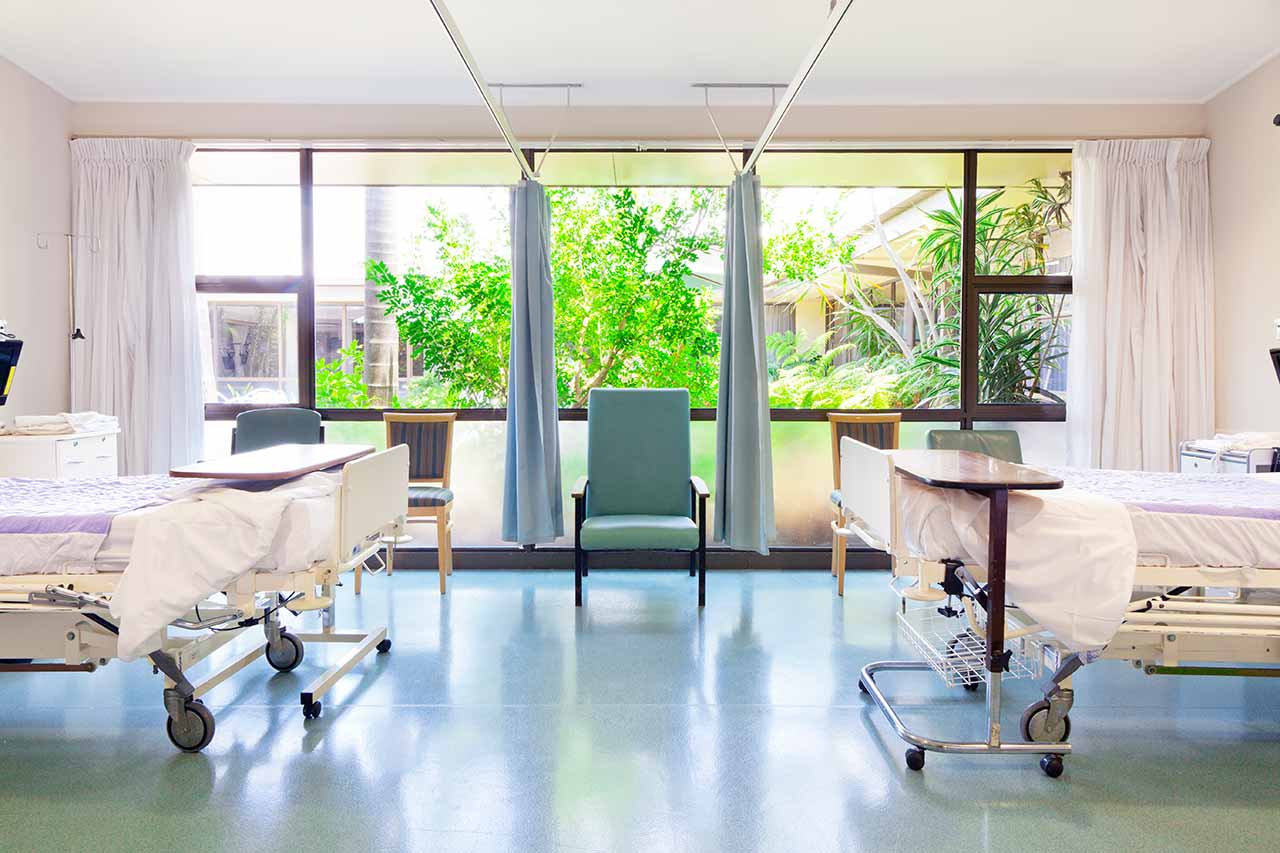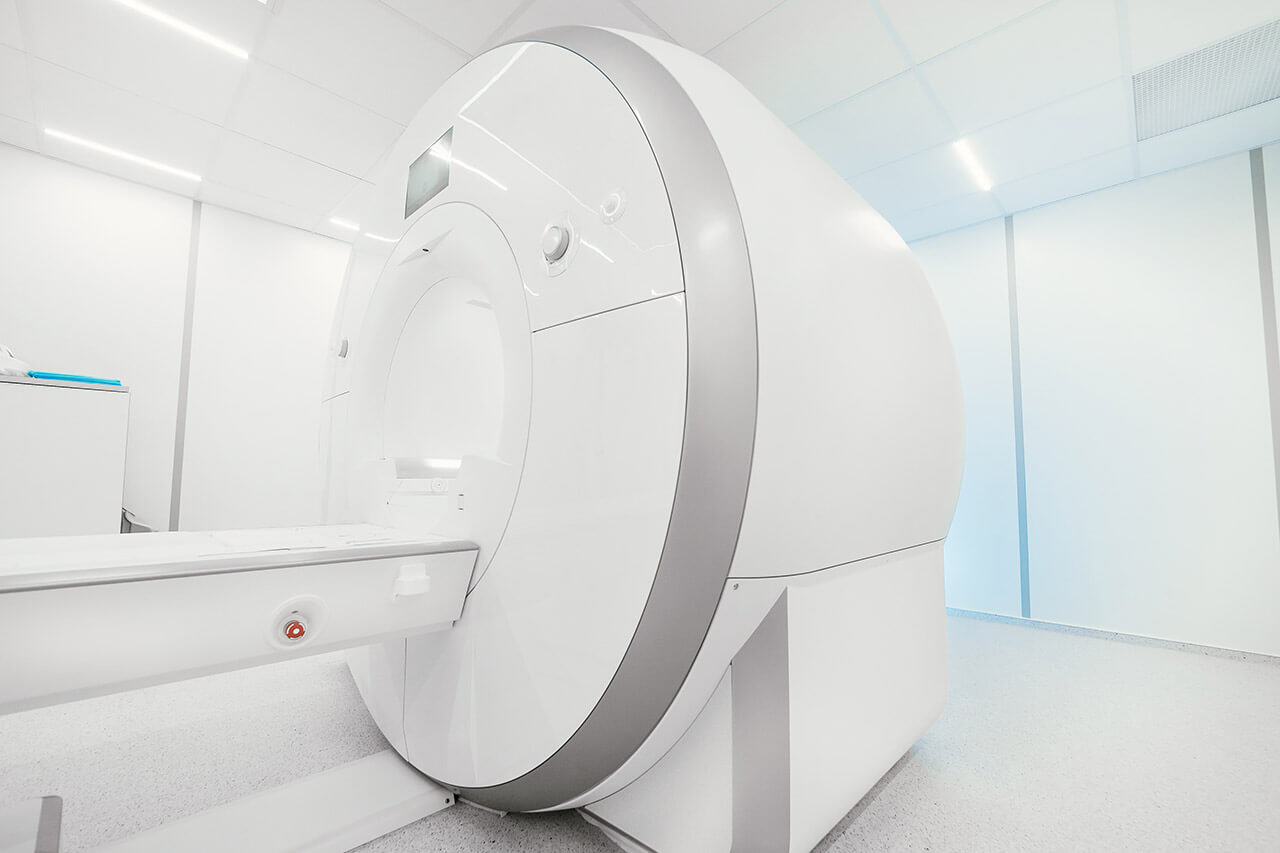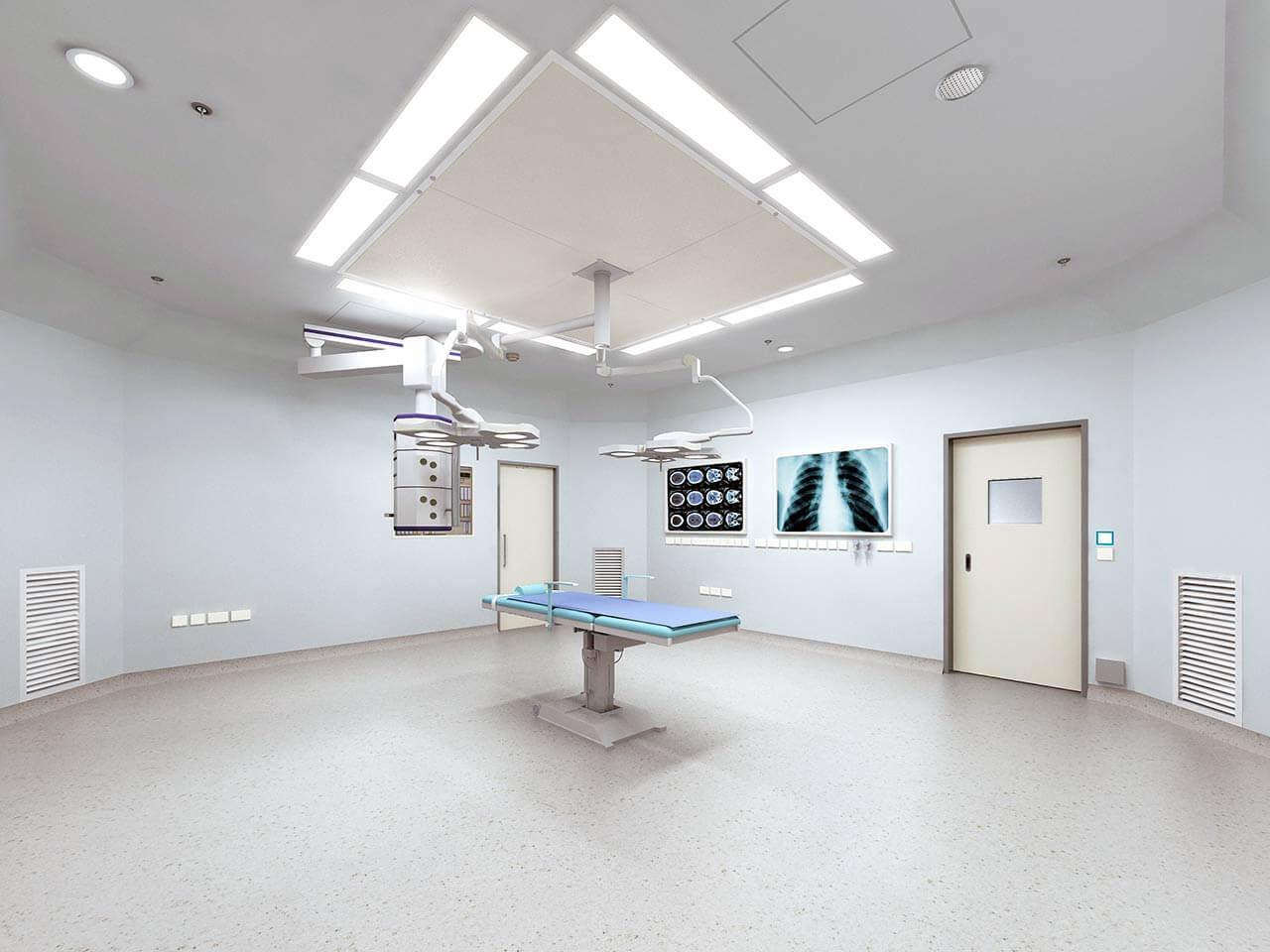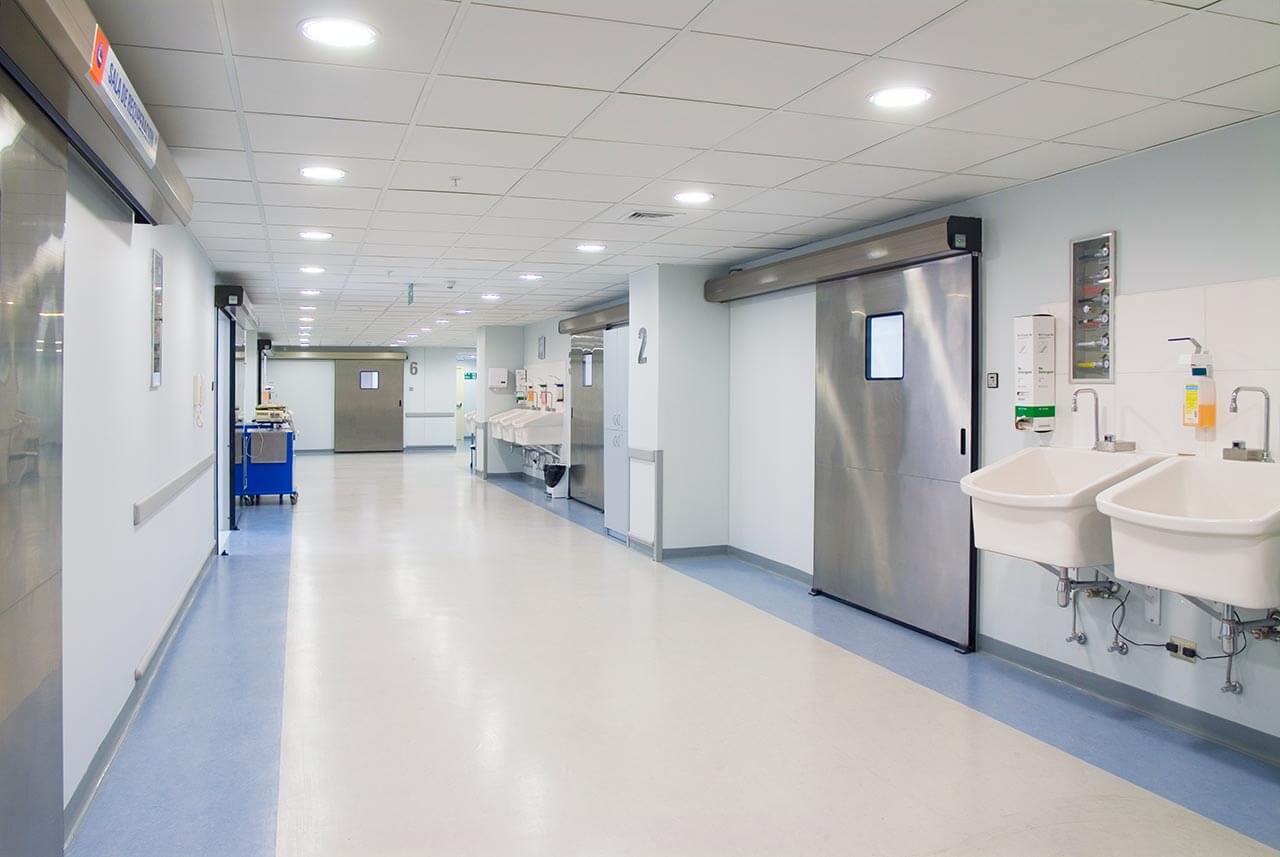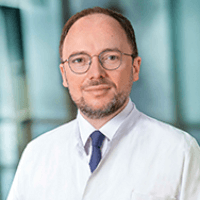
The program includes:
- Initial presentation in the clinic
- clinical history taking
- physical examination
- cardiac examination
- laboratory tests:
- complete blood count
- biochemical analysis of blood
- TSH-basal, fT3, fT4
- tumor markers
- inflammation indicators
- indicators blood coagulation
- measurement of arterial blood pressure
- ECG, echocardiography
- holter monitoring (24h)
- nursing services
- full hospital accommodation
- explanation of individual treatment planм
Required documents
- Medical records
- ECG (if available)
Service
You may also book:
 BookingHealth Price from:
BookingHealth Price from:
About the department
The Department of Cardiology at the Eichsfeld Hospital Heilbad Heiligenstadt offers all the options of modern medicine for the diagnostics and treatment of cardiovascular diseases. The key focus is on pharmacotherapy and interventional catheter-based procedures. The department has diagnostic rooms with advanced equipment, an Intensive Care Unit, an Emergency Care Unit and a progressive Cardiac Catheterization Laboratory. The medical facility has 90 beds for patient hospitalization. The patients with acute coronary syndrome are admitted around-the-clock. The department offers excellent diagnostic options: the full range of cardiac ultrasound examinations, including 3D cardiac ultrasound, computed tomography and magnetic resonance imaging (in cooperation with the Department of Radiology), coronary angiography and others. The department's cardiologists have all the necessary resources for the comprehensive assessment of the state of the cardiovascular system, which in turn ensures the selection of the most effective treatment regimen. The department's doctors are rightfully proud of the high treatment success rates and make every effort to restore the patient's health. The department is headed by Dr. med. Michael Unzicker.
The therapeutic process begins with comprehensive diagnostics. The patient undergoes basic laboratory tests, heart ultrasound scanning (depending on the particular clinical case, classical echocardiography, transthoracic, transesophageal echocardiography, stress echocardiography, 3D echocardiography are conducted), electrocardiography, 24-hour blood pressure monitoring. In complex clinical cases, the department's specialists also resort to catheter-based diagnostic procedures, namely coronary angiography. Whenever required, cardiac CT or MRI scanning can be carried out. Once an accurate diagnosis is made, doctors begin treatment planning. If possible, drug therapy becomes an option of choice, but often specialists still have to use cardiac catheterization treatments.
Cardiac catheterization procedures are performed in the high-tech Сardiac Сatheterization Laboratory. Diagnostic catheterization is most often aimed at detecting coronary artery stenosis and obstruction. The therapeutic offer in this field includes coronary artery balloon dilatation, implantation of drug-eluting stents, rotablation, pericardial puncture in case of bleeding or fluid accumulation, implantation of pacemakers and defibrillators, and other manipulations. Cardiac catheterization techniques involve inserting a thin and flexible plastic tube into the heart through an artery (usually through the femoral artery). Such interventional procedures make it possible to effectively eliminate heart pathologies without performing a full-scale surgery with thoracotomy. Recovery after cardiac catheterization procedures does not take long, and the health risks caused by the choice of these techniques are practically zero. The department's specialists have an impressive experience in the field of catheter-based diagnostics and treatment, so patients can be sure that they will receive a high quality result.
The department's range of diagnostic and therapeutic services includes:
- Diagnostic options
- Ultrasound examinations
- Transthoracic echocardiography
- Transesophageal echocardiography
- Stress echocardiography
- 3D echocardiography
- Duplex and Doppler ultrasonography of the arteries of the lower limbs and the arteries supplying the brain
- Abdominal ultrasound examinations
- Cardiac imaging tests
- Cardiac magnetic resonance imaging
- Cardiac computed tomography
- Catheter-based diagnostics
- Coronary angiography
- Fractional flow reserve measurement
- Optical coherence tomography (OCT) of the coronary vessels
- Myocardial biopsy
- Ultrasound examinations
- Therapeutic options
- Drug therapy for cardiovascular diseases
- Catheter-based treatment
- Coronary artery balloon dilatation
- Coronary artery stenting (usually drug-eluting stents are implanted)
- Rotablation
- Pericardial puncture
- Pacemaker and defibrillator implantation
- Cardiac resynchronization therapy for heart failure
- Cardiac contractility modulation for heart failure
- Atrial appendage closure
- Atrial septal defect closure
- Patent foramen ovale closure
- Transcoronary ablation of septal hypertrophy (TASH) for hypertrophic cardiomyopathy
- Emergency cardiac care
- Other diagnostic and therapeutic services
Curriculum vitae
Since 2021, Dr. med. Michael Unzicker has been the Head Physician of the Department of Cardiology at the Eichsfeld Hospital Heilbad Heiligenstadt. The specialist received his medical education at the Technical University of Munich and the Saarland University in Homburg. Dr. Unzicker has additional qualifications in the field of interventional cardiology and in the treatment of heart failure from the German Cardiac Society (DGK). The specialist trained in Germany, England and the USA. In addition, the specialist is Master of Health Business Administration (MHBA). His particular clinical interests include the treatment of coronary heart disease (CHD), cardiac arrhythmias and heart failure. Previously, Dr. Unzicker held the position of the Managing Senior Physician in the Departments of Cardiology at the hospitals in Schweinfurt and Lohr am Main. For a long time he worked as the Senior Physician in the Department of Cardiology at the Hospital Kassel.
Photo of the doctor: (c) Eichsfeld Klinikum
About hospital
The Eichsfeld Hospital Heilbad Heiligenstadt is a reputable medical facility, whose patients can undergo high-quality diagnostics and treatment in accordance with European standards. The medical facility is an Academic Hospital of the University of Goettingen, so many local doctors are actively engaged in research activities and can offer patients innovative treatment methods that are available only in leading medical centers in Germany.
The hospital has ten highly specialized departments, which are responsible for the diagnostics and treatment of a specific group of diseases. The hospital provides modern treatment of diseases of the heart, gastrointestinal tract, musculoskeletal system, female and male reproductive system, as well as diseases in children. The hospital has 352 beds. Patients also receive many medical services on an outpatient basis.
The hospital employs a highly professional team of doctors, each of whom strives to provide the patients with effective, most sparing and safe treatment in a comfortable environment. The specialists are distinguished not only by their successful clinical experience, but also by their approach to treatment – the patient and his health always come first. The doctors and nursing staff are sympathetic to the individual needs and wishes of their patients. The specialists are always ready to help, advise and answer questions of interest.
The hospital is justly proud of its modern technical base. The medical facility has diagnostic rooms with state-of-the-art equipment for laboratory and endoscopic examinations, operating rooms with everything necessary to perform minimally invasive and open surgeries, treatment rooms with advanced laser systems, etc. All this allows for high-precision diagnostics and treatment in accordance with the very latest standards of world medicine.
The exceptional quality of the hospital's medical services is confirmed by the prestigious Cooperation for Transparency and Quality in Healthcare (KTQ) certificate. In addition, an undeniable evidence of the high status of the hospital is the constantly growing number of patients who entrust their health to its doctors.
Photo: (с) depositphotos
Accommodation in hospital
Patients rooms
The patients of the Eichsfeld Hospital Heilbad Heiligenstadt live in comfortable single and double rooms with a modern design. Each patient room has an ensuite bathroom with shower and toilet. The furnishing of the patient rooms includes an automatically adjustable bed, a bedside table, a wardrobe, a TV and a telephone. The patient can connect to Wi-Fi, if desired.
The hospital also offers accommodation in enhanced-comfort rooms. Such patient rooms are more spacious, additionally equipped with upholstered furniture, a safe and a mini fridge. The bathroom of the enhanced comfort rooms has changeable towels and toiletries.
Meals and Menus
The hospital provides its patients with three delicious and healthy meals a day: breakfast, lunch and dinner. Diet meals are provided for each meal. If for some reason you do not eat all the foods, you will be offered an individual menu.
Those patients living in enhanced-comfort rooms are offered a wider range of meals. Fresh fruit is delivered to the room every morning, as well as tea and coffee can be ordered throughout the day.
In addition, the hospital has a cozy cafeteria where one can taste delicious European cuisine, enjoy a cup of tea, coffee or cappuccino with a wonderful dessert.
Further details
Standard rooms include:
Television
During an inpatient stay, each patient can use a telephone, a TV and the Internet. Please inform the medical staff about your desire to use these services at the time of admission to the hospital. The base rate is 1.60 € per day and includes the use of the TV in the patient room.
The Internet is available in almost all patient rooms of the hospital. Reservations are made upon admission to inpatient treatment or in the information department. Access is provided with a password for a fee of 3 € for every 300 MB.
Religion
The hospital regularly hosts Catholic divine services. Other religious services are available upon request.
Accompanying person
Your accompanying person may stay with you in your patient room or at the hotel of your choice during the inpatient program.
Hotel
You may stay at the hotel of your choice during the outpatient program. Our managers will support you for selecting the best option.
